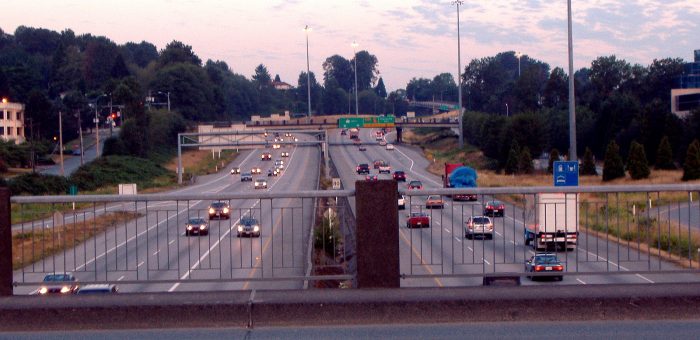Twice in the last two years I introduced a private member’s bill entitled Rideshare Enabling Act, 2017. Twice that bill died on the order papers as the BC Liberals were hesitant to bring in the necessary regulatory framework. But the past election campaign forced the BC Liberals and the BC NDP to reconsider their positions. They both eventually joined the BC Greens in committing to bring ridesharing to British Columbia as part of their election platforms. In fact, an instruction to do so was included in the Premier’s mandate letter to Minister Trevena. However, the mandate letter includes no timeline, and British Columbians continue to wait.
If we wish to consider ourselves as innovators in the emerging 21st century economy we must be willing to embrace the innovation that we create. Failing to do suggests that we are not serious about taking a leadership position in the new economy. That’s why today I signaled my intention to bring in a slightly modified version of my earlier legislation. It is designed to create the required transportation and insurance regulatory framework for transportation network companies to operate in British Columbia.
The reality is that several ridesharing companies are already operating in Metro Vancouver in an unregulated environment. These include the Chinese language Udi Kuaiche and Racoon Go ridesharing companies. It’s imperative that we bring in the appropriate legislation sooner than later in order to level the playing field.
I encourage people to examine the draft legislation and provide me with their input. The final version of the legislation will be introduced in October.
In addition, our new minority government offers an exciting opportunity to work together to advance good public policy. I invite my colleagues on both sides of the house to discuss this legislation with me in advance of its introduction. By working together, we can finally bring ridesharing to B.C. in a way that meets the needs of consumers while ensuring that B.C. businesses is able to thrive.
As a final note, I penned an OPED on this topic which was published in the Vancouver Sun today. Below I reproduce that as well as today’s media release.
Vancouver Sun OPED
We are in an unprecedented era of technological innovation. Just a decade after the launch of the iPhone, three quarters of Canadians now have a smartphone in their pockets. Last year, new installations of emissions-free power surpassed fossil fuel for the first time. We are only three years away from millions of self-driving cars hitting our streets.
While it can be tempting to view such dramatic technological shifts as either thrilling or terrifying, the truth is the effects of new technology are complex. To take self-driving cars as an example, we can expect to see positive impacts such as a reduction in emissions, less congestion and fewer accidents, but we will also see a significant loss of jobs as taxis and trucks become automated.
Government cannot stick its head in the sand and hope the effects of these technological shifts sort themselves out. What is needed is a proactive, responsive approach that considers the wide ranging impacts of these changes, and a government that crafts innovative policies that will ensure British Columbia stays on the cutting edge of technological adoption.
That’s why, this October, I will re-introduce ride-sharing enabling legislation, a bill I first introduced in 2016.
Ride-sharing first came to B.C. in 2012, but the first ride-sharing company left the city after a $75 trip minimum was imposed. Vancouver is now the largest city in North America without this service. In 2016, leaders from the city’s tech industry wrote an open letter expressing concern “regarding the provincial government’s long-standing inaction on ride-sharing regulation in B.C. and how we now find ourselves falling behind the rest of the world.”
Like most technologies, the effects of ride-sharing are complex. Studies suggest that ride-sharing may reduce emissions and incidences of drunk-driving. However, ride-sharing has also sparked concerns about public safety and a lack of a level playing field for existing businesses.
These concerns must be addressed so that B.C. business remains competitive and the safety of British Columbians is assured. But while the government dithers, unregulated ride-sharing companies continue to operate under the radar.
Government can take action to prevent such illegal companies from taking hold by implementing proactive technology adoption policies. I am excited that a key element of the B.C. Greens emerging technology platform — the Emerging Economy Task Force — is included in our Confidence and Supply Agreement with the new NDP government. This task force will do precisely what government failed to do when ride-sharing was first introduced to B.C.: assess the impacts of new technology and provide proposals on how to best address them.
All three political parties promised to bring ride-sharing to B.C. during the 2017 election campaign. I am encouraged that an instruction to legislate ride-sharing was included in Transportation Minister Claire Trevena’s mandate letter from the Premier. But there was no timeline specified and British Columbians continue to wait for action on this file.
All three parties have acknowledged that this new minority government is an opportunity to work together to advance good public policy that is in the best interests of British Columbians.
I invite my colleagues from both the B.C. NDP and B.C. Liberal caucuses to discuss my ride-sharing enabling act and propose their ideas for this legislation in advance of its introduction in October.
We all want to see B.C. be a leader in the emerging economy, but we can’t get there if we continue to stick our heads in the sand when it comes to adopting new technology.
Instead, let’s collaborate to finally bring ride-sharing to B.C. in a way that meets the needs of consumers while ensuring that B.C. businesses is able to thrive.
Media Release
Andrew Weaver to re-introduce ridesharing legislation this Fall
For immediate release
August 21, 2017
VANCOUVER, BC – Andrew Weaver, leader of the B.C. Green caucus, announced today that he will re-introduce legislation to enable ridesharing this Fall. Weaver has twice introduced the Ridesharing Enabling Act, once in April 2016 and again in February 2017.
“The government cannot stick its head in the sand when it comes to new technology,” said Weaver.
“All parties want to see B.C. be a leader in the emerging economy. To do so, government must take a proactive, responsive approach that considers the wide ranging impacts of technological innovation. Vancouver is the largest city in North America without ridesharing – it is time we finally made this service accessible to British Columbians.
“I am encouraged that all three parties agreed to bring ridesharing to B.C. in the past election, and that an instruction to do so was included in the Premier’s mandate letter to Minister Trevena. However, the mandate letter includes no timeline, and British Columbians continue to wait.
“In this new minority government, we have an opportunity to work together to advance good public policy. I invite my colleagues on both sides of the house to discuss this legislation with me in advance of its introduction. By working together, we can finally bring ridesharing to B.C. in a way that meets the needs of consumers while ensuring that B.C. businesses is able to thrive.”
-30-
Media contact
Jillian Oliver, Press Secretary
+1 778-650-0597 | jillian.oliver@leg.bc.ca







